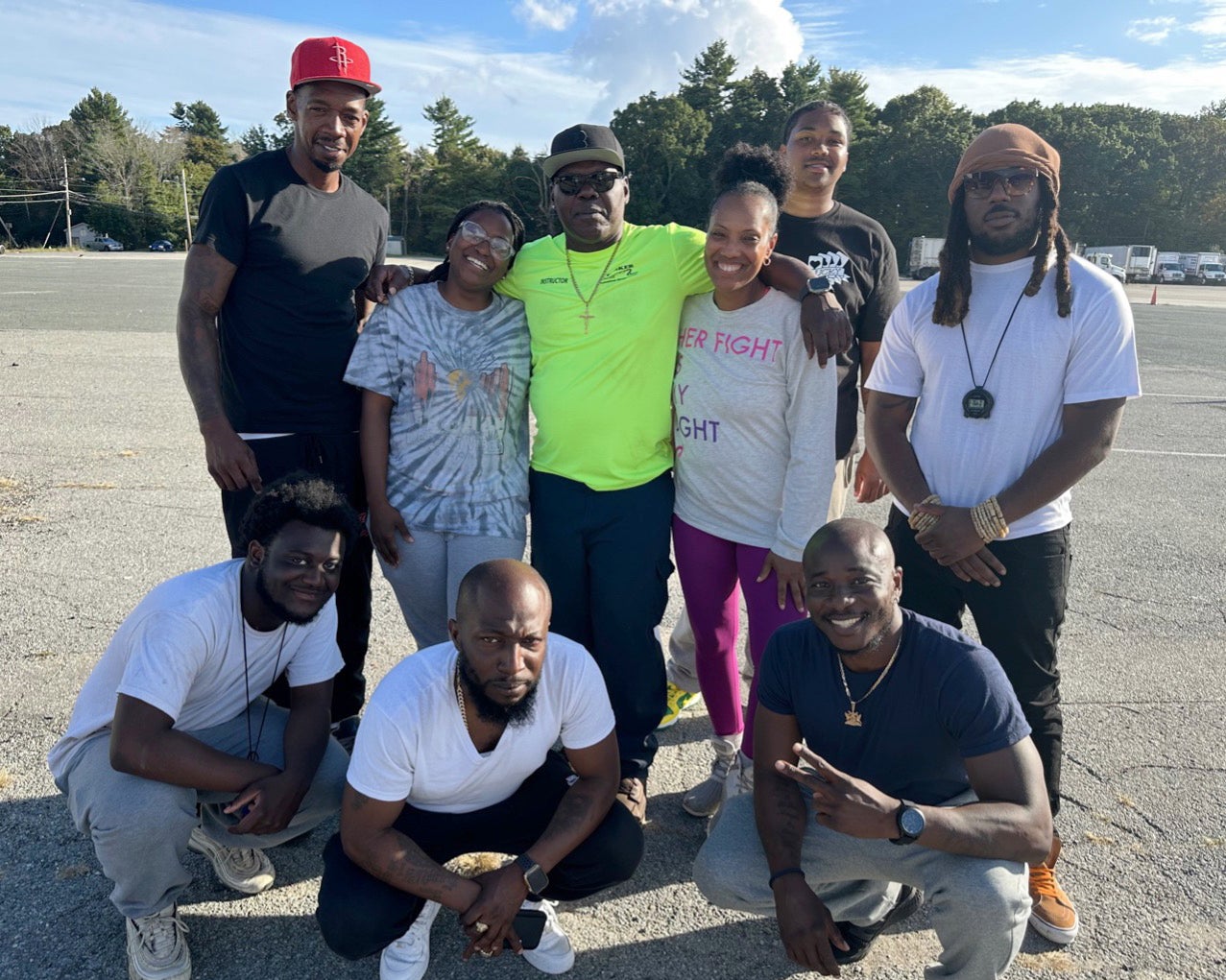[Originally published by Harvard Law Today, September 19, 2024]
A Boston-area collaboration supported by Harvard’s Transactional Law Clinics is bringing business skills to returning citizens

Credit: Getty Images
When Wayne Lane finally returned home, the challenges ahead felt nearly insurmountable. Needing time to mentally heal from eighteen years in a Louisiana prison but also a stable, immediate income, Lane faced an uphill battle.
“Trying to transition from incarceration to society is no easy task,” he says. “It takes faith and discipline.”
Back in Boston, Lane obtained his Commercial Driver’s License, or CDL, ushering in a career that has given him the security he’s strived for. Now, Lane is a homeowner, has completed his parole, and is hoping to help others in his position by starting his own business: Switching Lanes with Wayne, a course for people transitioning out of incarceration to help them obtain their own CDLs.
A new collaboration between Harvard Law School’s Transactional Law Clinics, First Step Alliance, and the City of Boston is working to give returning citizens like Lane a pathway to financial stability. The Fresh Start Entrepreneurship & Financial Capabilities Program offers returning citizens the education, mentoring, and legal assistance they need to start and run their own business. The initiative brings together entrepreneurship and money management training, providing comprehensive preparation for becoming a business owner.
Lane joined the program last spring to learn the ins and outs of how to get Switching Lanes with Wayne off the ground. “The Fresh Start Program helped me out in ways you couldn’t imagine,” he says.
Supporting financial stability and self-sufficiency
“This kind of training program helps people who are at the very beginning of dreaming about their business,” says Carmen Halford, lecturer at law and clinical instructor at Harvard Law. “They’re just starting to figure out, how do I do this on a larger scale? How do I make this a sustainable income source for myself?”
“Becoming a business owner isn’t just about financial stability; it’s about regaining control and creating something of your own,” adds Nancy Eiden, creator of the Fresh Start Entrepreneurship Program and founder of First Step Alliance, a nonprofit dedicated to bringing financial education and access to banking services to returning citizens. “Our Fresh Start Entrepreneurship Program helps people transform their dream of business ownership into reality. Whether it’s learning how to create a business plan or understanding important personal finance concepts, such as budgeting and credit building, we provide the resources and support people need to create a path forward.”
Dreaming after incarceration can be difficult, says Lane. As an activist advocating for returning citizens, he felt called to turn his experience into an education for people facing the challenges he once overcame. “My vision widened, and I decided I wanted to open a CDL driving school. Fresh Start helped me put that business plan into action.”

Wayne Lane (center) with members of his CDL certification class, Switching Lanes with Wayne
About 3,000 individuals return to Boston after incarceration each year. At the Transactional Law Clinics, Halford wanted to find more ways to bring the clinic’s expertise to this population. “We want to make sure that the projects we’re taking on are working to build a more sustainable and equitable community here in Cambridge, in Boston, in Massachusetts,” she says.
The clinics’ involvement in the Fresh Start Entrepreneurship Program stems from a broader mission to promote economic justice. Halford elaborates, “We see the role of a transactional attorney as not just making deals and moving money around, but to actually build wealth in communities that face systemic obstacles to growing it.”
Inspired by the Fresh Start Entrepreneurship Program, Halford is teaching a reading group this fall titled Second Chance Entrepreneurship, drawing on experiences working with returning citizens.
“We see the role of a transactional attorney as not just making deals and moving money around, but to actually build wealth in communities that face systemic obstacles to growing it.”
Clinical Instructor Carmen Halford
The program’s development began with conversations between Halford and Eiden: “We were talking about how there’s a lot of overlap in our missions, and entrepreneurship was a natural area where we felt like we could collaborate,” Halford says. Recognizing the complexity of starting a business, the two sought to create a comprehensive support system — covering everything from guidance on how to write a business plan to explaining the pros and cons between an LLC and a corporation.
“At First Step Alliance, we understand that financial stability and self-sufficiency are key to successful reentry, yet returning citizens often face systemic discrimination and can be completely shut out of mainstream banking and meaningful employment opportunities,” explains Eiden. “Through our Fresh Start Programs and proposed new credit union initiative, we’re working to bridge this gap, helping returning citizens create an alternative path to income and wealth creation through business ownership, as well as improving access to affordable financial services.”
The program brought in additional partners, including Reentry Survivors, an organization that provides individuals returning from the justice system with skills for a successful reintegration into society. The Boston Public Library joined in to provide Chromebooks to each program participant in exchange for signing up for a library card.
Boston calling
The Boston Mayor’s Office of Returning Citizens has also been an instrumental collaborator, providing crucial funding, outreach, and support, including $500 grants to each participant as starting capital. Ashley Montgomery, its executive director, says that the partnership was a natural fit. “A lot of our clients want to go into entrepreneurship for a multitude of reasons, and we wanted to provide a resource to clients interested in starting their own businesses,” she explains.
Rechelle Hypolite, the office’s director of programming and strategic initiatives, adds, “For our clients to have a direct pipeline of folks that can really support them and tell them, ‘Hey, either I’ve done this before, or I’ve seen this before and know this process, and I can help you along the way,’ that’s really important.”
The program addresses several critical barriers faced by returning citizens, particularly in areas of employment and housing. Hypolite says that it is difficult for people with low credit scores to find a place to live. “Having access to programs and support like Fresh Start and other initiatives through our office allows people to access opportunities that will really stabilize their lives,” she says.
The Fresh Start Program’s structure includes business skills trainings, money management trainings, and legal presentations over the course of six ninety-minute sessions. This spring was the program’s pilot year and included a legal presentation by students from Harvard’s Transactional Law Clinics. Looking ahead, the program’s organizers are exploring ways to expand its reach and impact, and a second, shorter version of the program is starting up later this month.
Halford is contemplating plans for future in-person legal training sessions, potentially including student involvement in intake processes to help program participants become clients. For future cohorts, First Step Alliance aspires to offer small loans to program graduates to help kick start their businesses, and build their credit histories, but that is contingent on fundraising.
Harvard Law students on the vanguard
As students in the clinics, Ian Malesiewski ’25 and Nicky Yoon ’25 worked with Halford to interview returning citizen entrepreneurs and to solicit their feedback; to create a presentation explaining legal considerations for starting a business; and to facilitate a Q&A session with attorneys.
“I learned the extent of the structural barriers that returning citizens face when it comes to entrepreneurship,” reflects Yoon. “As such, our work felt especially pressing and significant, as one of those barriers is a lack of access to knowledge, whether legal, financial, or otherwise. The existence of the Fresh Start Entrepreneurship Program was an encouraging indication of societal efforts to empower returning citizens, and I hope the program continues to grow.”
“Throughout the project, it became evident that most of the individuals in the cohort were starting from scratch and didn’t have a lot of support with starting their businesses,” adds Malesiewski. “It was extremely rewarding to help bridge this information divide and help provide them with information they needed to earn a living.”
Switching Lanes with Wayne
For Lane, the Fresh Start Entrepreneurship Program provided more than just business skills.
“It gave me a lot of confidence, for one,” he explains. “It helped me with the beginning stages of my business, and being able to interact with other students allowed me to get comfortable doing presentations and put my business plan in place.” Other classmates also had business ideas aiming to help returning citizens get back on their feet, and Lane plans to continue collaborating with them in the future.
Already, the program is building momentum. “In the next cohort coming up, we’ve literally doubled our numbers since the last time we sent out the flyers,” says Hypolite. “One of my former clients had heard about the program through friends, and he is finally able to join this fall and is so excited. There’s a real sense of community building around it.”
The collaboration demonstrates the potential for innovative partnerships in addressing a shared goal: economic empowerment for returning citizens. By combining legal expertise, business training, and government support, the program is creating new pathways for returning citizens to rebuild their lives and contribute to their communities.
Lane’s advice to other returning citizens considering entrepreneurship reflects the program’s ethos. “Just continue that faith, make sure you have the necessary discipline in your life, and continue to stay focused,” he says.
